7 Chinese Herbs for Healthy Weight Loss
For hundreds of years, Traditional Chinese Medicine (TCM) doctors have used natural therapies to help restore healthy weight and improve overall health in their patients. A great many books – both ancient and modern – share the wisdom of these therapies, including the practice of “food as medicine,” and the integration of Chinese herbs to support healthy weight loss and longevity.
In addition to discussing the top Chinese herbs for weight loss, we will explore common causes of weight gain; the differences between supplements and Chinese herbs for weight loss; research that supports TCM for weight loss; and recommendations for achieving healthy weight loss and improved quality of life.
What Causes Weight Gain?
Weight gain occurs when more calories are consumed than expended. In modern times, the Western diet is considered to be a major contributor to weight gain, and to the growing rate of obesity in the United States.

From a TCM perspective, weight gain or obesity can be caused by a variety of factors, including:
Imbalanced Dietary Habits
Imbalanced eating habits, such as consuming too much cold, greasy, or sweet food can lead to weight gain. These foods are believed to negatively affect Spleen Qi — the energy responsible for metabolism, transforming food into usable nutrients, and transporting nutrients throughout the body. When Spleen Qi is weakened, it may result in slower metabolism, inefficient assimilation of nutrients and the accumulation of excess weight.
Overeating
TCM also warns against overeating or eating late at night, as it overloads Spleen Qi. This added stress may cause the body to store excess nutrients as fat rather than converting them into energy.
Lack of Exercise
Lack of exercise is believed to lead to Qi stagnation, food stagnation and phlegm accumulation. In TCM, the Spleen, Stomach and Liver are critical organs for digestion and nutrient absorption. Lack of exercise can negatively impact their functioning and cause the body to accumulate weight.
Emotional Imbalance
According to TCM, emotions are closely linked with the functions of specific organs. For instance, excess worry or overthinking may impact the spleen and stomach, leading to improper digestion, “emotional eating” and appetite issues. Emotions such as anger or stress can affect the liver Qi and disrupt digestive function, leading to weight gain.
Poor Sleep
TCM emphasizes the importance of good sleep for maintaining a healthy weight. Poor sleep or sleep at late hours can disrupt the body’s natural rhythms, negatively impacting both digestion and the body's ability to metabolize food and energy.
Hormonal Changes
Hormonal shifts can alter the body's metabolism, such as stages of puberty, menopause, and pregnancy, or in endocrine-related conditions like hypothyroidism.
Certain Medications
Some medications are known to cause weight gain as a side effect. These include certain antidepressants, antipsychotics, and medications for epilepsy and diabetes.
Family History
According to TCM, each individual inherits a particular constitution, which can predispose one to certain health tendencies, and this includes potential weight issues. While some factors like genetics cannot be changed, individuals with familial tendencies toward weight gain can benefit from a holistic approach to healthy weight loss, as we’ll explore next.
How are Chinese Herbs for Weight Loss Different from Weight Loss Supplements?
Both weight loss supplements and Chinese herbs can be used as part of a comprehensive weight loss plan, but they have fundamental differences in their nature, ingredients, and how they function in the body.

Weight Loss Supplements
Weight loss supplements typically contain a variety of ingredients such as vitamins, minerals, amino acids, and herbs or botanicals. They come in various forms, including tablets, capsules, liquids, and powders.
Key features of weight loss supplements:
- Their main purpose is to aid weight loss through various mechanisms such as boosting metabolism, suppressing appetite or blocking fat absorption.
- Many have stimulant-like effects due to ingredients like caffeine.
- Some may contain proprietary blends that might not clearly state the quantity of each ingredient.
- Their effectiveness and side-effects may vary widely from person to person.
Chinese Herbs for Weight Loss
Traditional Chinese medicine uses herbs to help restore balance to the body and improve overall health. For weight loss, specific herbs that relate to a person’s digestion, metabolism, appetite, and mood may be used.
Key features of Chinese herbs for weight loss:
- They approach weight loss from a holistic, body-balancing perspective. The goal is to restore harmony and balance to the body's systems rather than simply reducing body weight.
- They are used to enhance TCM organ function (especially relating to digestion and metabolism) to support healthy weight loss.
- The selected herbs are usually tailor-made for an individual's specific needs after careful diagnosis by a qualified TCM practitioner. It's rarely a "one-size-fits-all" approach.
- Rather than acting as stimulants, they work gently on the body to assist it in returning to its optimal functioning.
Apart from these differences, consulting with a qualified healthcare provider is recommended before starting any new supplement or herbal routine for weight loss.
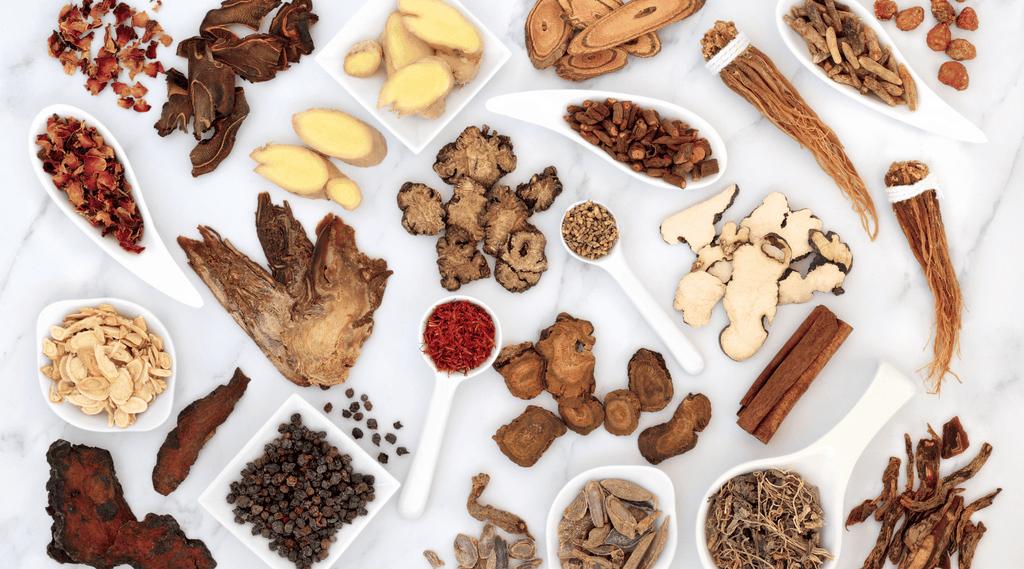
Does the Research Support Traditional Chinese Medicine for Weight Loss?
Research shows Chinese herbal preparations may offer safe, clinical efficacy to those seeking healthy weight loss. Leptin resistance, common in obesity, has also been studied using using Chinese herbal compounds with promising results. Additionally, acupuncture in combination with diet restriction was found to be an effective weight loss strategy.
Other clinical data suggests that acupuncture is an effective therapy for obesity, with neuroendocrine regulation potentially playing a role.
What are the Best Chinese Herbs for Weight Loss?
The best Chinese herbs for weight loss include Shan Zha (Hawthorne), Bai Zhu (White Atractylodes Rhizome), Ze Xie (Alisma Rhizome), Fu Ling (Poria), He Ye (Lotus Leaf), Cang Zhu (Atractylodes Rhizome), and Chen Pi (Tangerine Peel).
These seven herbs have been widely used in TCM clinical practice for their traditional actions of transforming and drying dampness, clearing heat, and strengthening Spleen Qi.
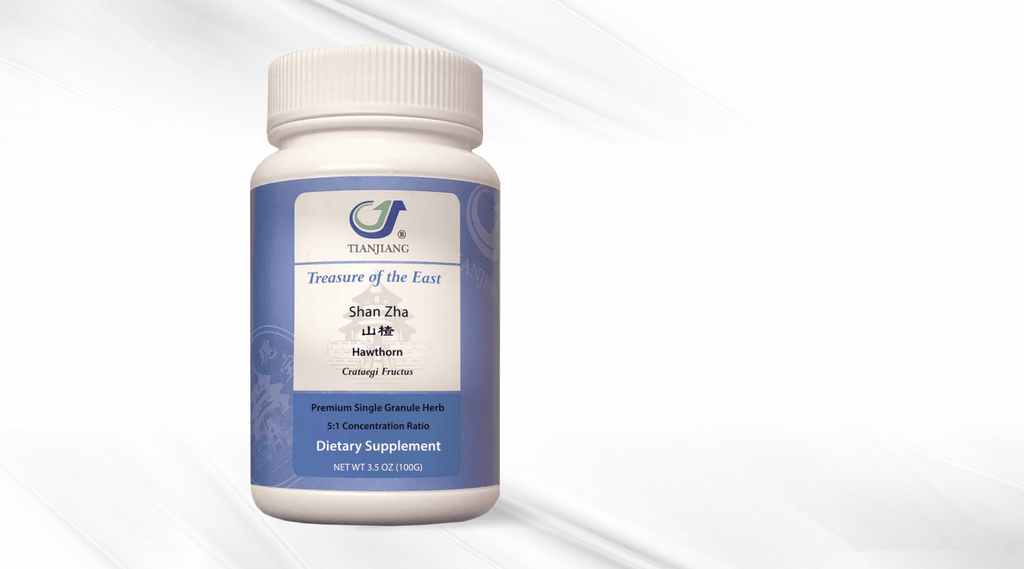
1. Shan Zha (Hawthorne Berry)
Shan Zha is a sweet, sour, slightly warm herb.
Traditionally, this herb opens the appetite, digests food, resolves stagnation, eliminates accumulation, invigorates blood, disperses stasis, resolves phlegm, and moves qi.
Shan Zha may assist with weight loss by improving digestion, especially of meats and greasy foods with its purported ability to break down fat and cholesterol.
2. Bai Zhu (White Atractylodes Rhizome)
Bai Zhu is a bitter, sweet, warm herb.
Among its many functions, Bai Zhu traditionally fortifies the spleen, boosts qi, dries dampness, and promotes urination.
Animal studies investigating the use of Dang Gui Bai Zhu Tang, a formulation including Bai Zhu and Fu Ling, showed potential therapy against obesity.
3. Ze Xie (Alisma Rhizome)
Ze Xie is a sweet, bland, cold herb. Traditionally, this herb promotes urination, removes dampness and drains heat.
Ze Xie may assist in reducing water retention, making it a potentially good choice for reducing bloating.
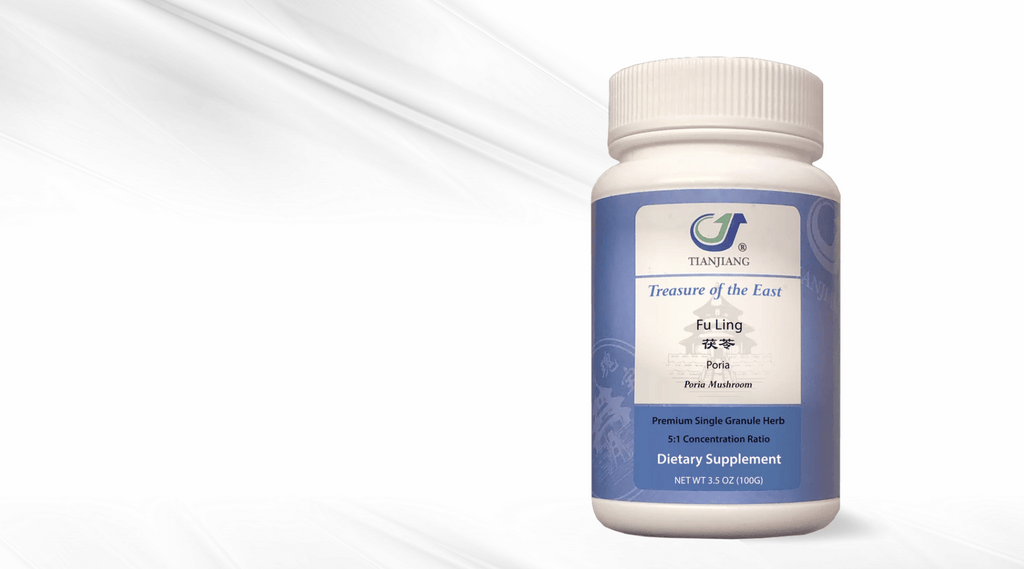
4. Fu Ling (Poria)
Fu Ling is a sweet, bland; neutral herb. Traditionally, Fu Ling promotes urination, leaches out dampness, fortifies the spleen and stomach and calms the spirit.
A type of mushroom commonly used in teas and soups, Fu Ling is believed to help with water retention and bloating.
A key ingredient in Si Jun Zi Tang (Four Gentlemen Decoction), Fu Ling is one of four herbs in this formula that is used to tonify Spleen Qi and dry the Spleen. Si Jun Zi Tang may therefore offer balanced support for healthy weight loss and improved digestive function.
5. He Ye (Lotus Leaf)
He Ye is a bitter, slightly sweet and neutral herb. Among its traditional functions, He Ye clears heat, resolves summer heat and sends up clear yang.
He Ye has also been studied for its ability to increase lipolysis, the breakdown of fat in the body. Studies suggest that it prevents fat accumulation in the body by blocking the absorption of fats and carbohydrates.
6. Cang Zhu (Atractylodes Rhizome)
Cang Zhu is a bitter, acrid and warm herb. Traditionally, this herb dries dampness, fortifies the spleen, dispels wind, disperses cold, and brightens the eyes.
Cang Zhu has been the subject of research on the treatment of obesity patients with insulin resistance affecting glucose metabolism.
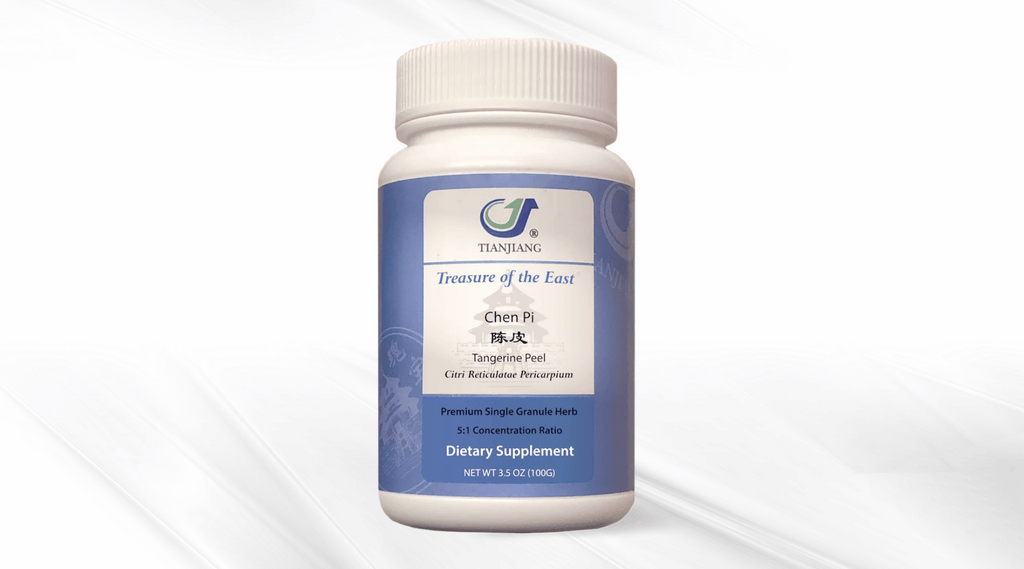
7. Chen Pi (Tangerine Peel)
Chen Pi is a bitter, acrid and warm herb. It regulates qi, fortifies the spleen, dries dampness and transforms phlegm. Also known as aged citrus peel, Chen Pi is commonly used in TCM for gastrointestinal disorders and cholesterol management.
Additionally, Chen Pi has been studied for its effects on the gut microbiome, indicating potential protection from developing an obesity disorder.
Diet & Lifestyle Tips for Healthy Weight Loss
To achieve and maintain a healthy weight, Chinese medicine offers these diet and lifestyle suggestions.
Exercise Regularly
Regular physical activity is encouraged to maintain a balanced flow of Qi, promote optimal organ function, and prevent weight gain. Qigong, Tai Chi, or regular brisk walks are recommended to promote circulation and body metabolism.
Consume Green Tea
Regular consumption of green tea has shown to benefit healthy body weight, blood pressure, and healthy levels of blood glucose and lipids.
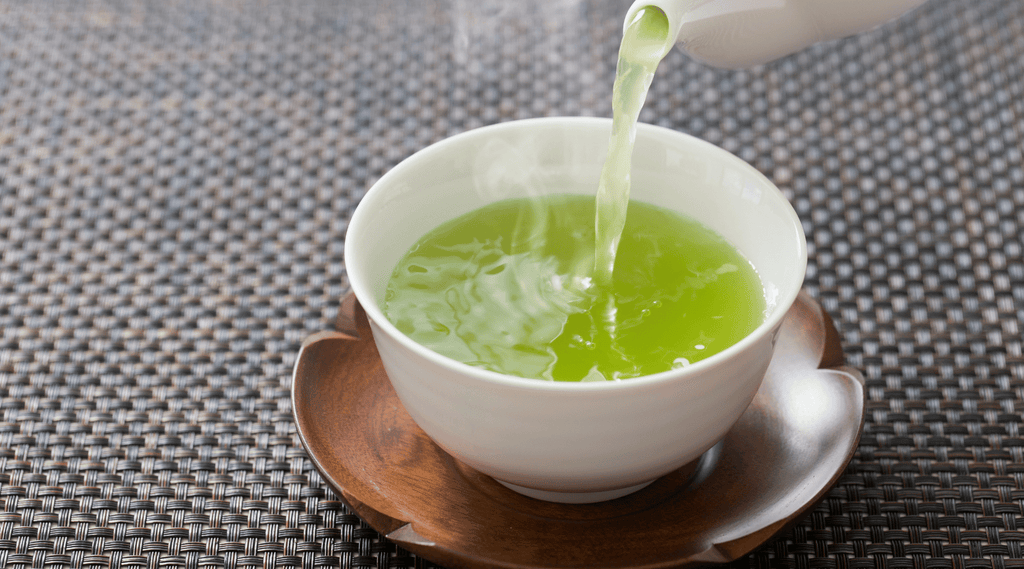
Limit Dairy Products, Sugar & Simple Carbohydrates
Because weight gain often involves excess dampness in the body, TCM generally recommends limiting dairy, which can contribute to phlegm accumulation and water retention.
Sugar and simple carbohydrates have also been shown to cause weight gain.
Opt for Warm Foods Over Cold
Ice cream, ice water and too many raw foods (i.e. uncooked vegetables) can damage Spleen Qi. This can lead to a sluggish metabolism and unwanted weight gain. Warm foods including steamed vegetables can help repair and strengthen the digestive system.
Get Adequate Sleep
Adequate sleep can help support the body’s natural rhythms, and give digestive organs the rest needed to function at their best.
Meditate
Stress reduction practices like meditation can help smooth Liver qi and promote healthy emotions. A balanced state of mind may therefore be a good strategy for preventing stress-eating.
Conclusion
We hope this article has shed some light on the potential benefits of Chinese herbs for weight loss. Remember that Chinese herbs for weight loss should be used as part of a holistic approach to health and wellness, which includes physical activity, other lifestyle changes, and a balanced diet.
Always consult with a qualified healthcare provider before using herbs or other dietary supplements, as some may have side effects or interact with medications.
Our wish is to empower TCM practitioners and their patients with premium-level Chinese herbs for effective weight management and for improving overall well-being.
Practitioners, did you know...? Treasure of the East’s full-spectrum extracts contain the same active chemical constituents as raw herbs! Register for a professional account today, or read on to discover all the benefits of including full-spectrum granules in your herbal pharmacy.
This article is provided only as an educational resource - it is not intended or implied to be a substitute for professional medical advice, and the herbs and/or formulas within are not intended to diagnose, treat, cure or prevent any diseases. This information is intended for only licensed healthcare practitioners.



















